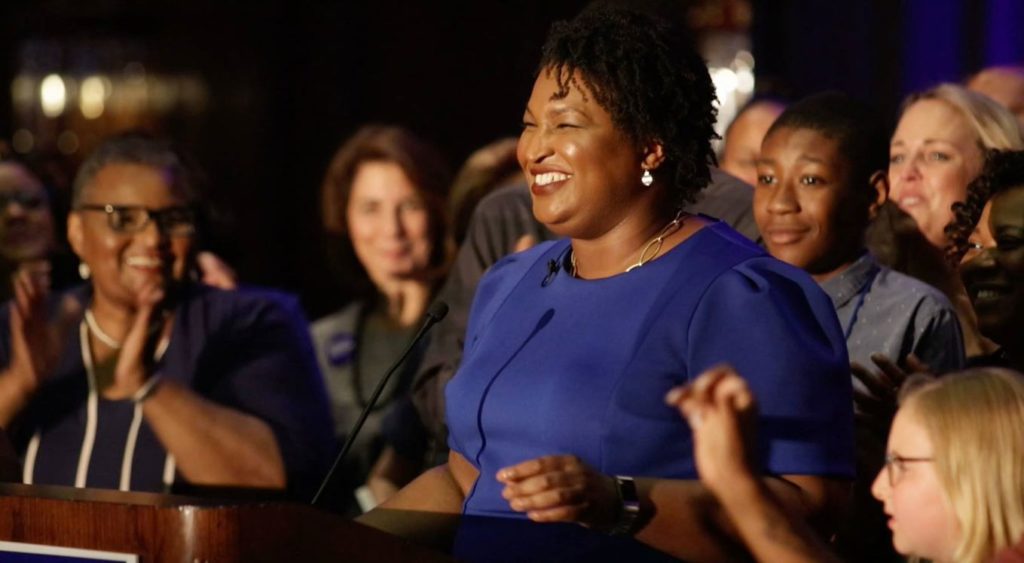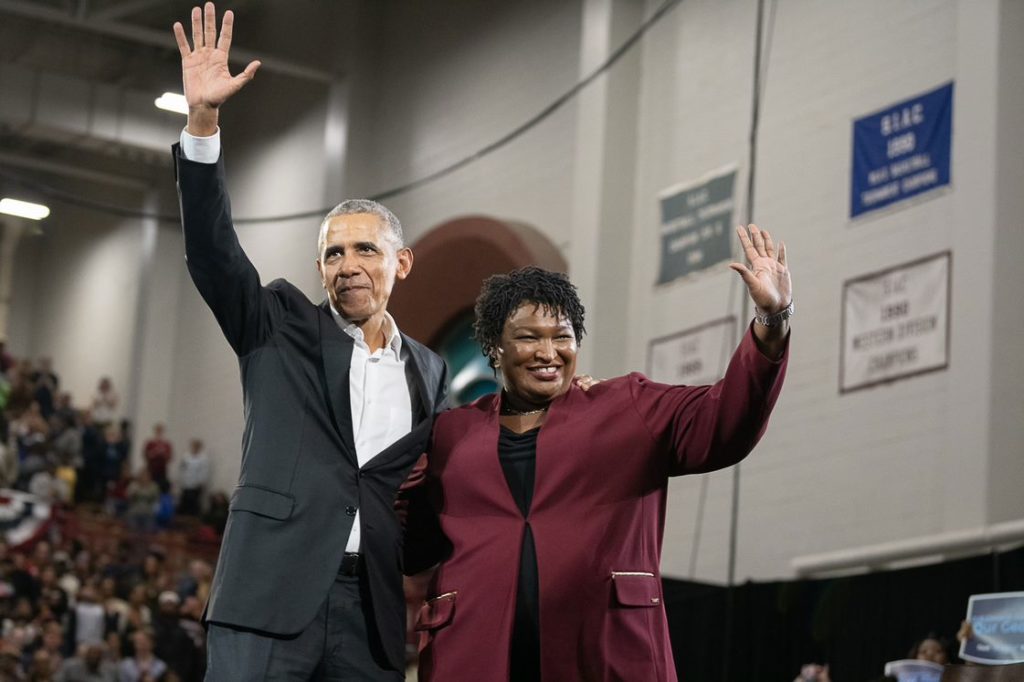Stacey Abrams: A Fair Fighter
May 29, 2019
Stacey Abrams addresses supporters shortly after her landslide victory during` the 2018 Democratic Primary.
Stacey Abrams — business woman, nonprofit leader, and elected official — has entrepreneurial zeal. The former candidate for governor of Georgia, who delivered the official Democratic response to President Trump’s State of the Union address in February, is a two-time founder.
Abrams co-founded Nourish, a small business which made formula-ready bottled water for babies and sippy-cups for toddlers, and NOWAccount, a company providing a payment system to small businesses, improving their cash flow so they can grow and thrive.
“In all of my ventures…my primary goal is to find solutions to the problems others face,” she says.
She applies the same philosophy to her political work. In her historic 2018 run, Abrams vied for the Georgia gubernatorial seat. She would have become the first African American woman elected governor in the United States. Although she lost the race, her run left an impact.
“I ran for governor of Georgia because I believe we can build a state where every family can succeed,” Abrams says. “Although the outcome was not what I had hoped, we transformed the electorate in Georgia. Voters who had sat out recent elections felt moved to cast their ballot.”

Stacey Abrams and Barack Obama share the stage during a Get Out The Vote Rally in Atlanta, GA.
She notes that her campaign increased turnout of Latinx, Asian American and Pacific Islanders (AAPI), and African American voters and young voters. Abrams cites voter suppression tactics and election mismanagement during the race.
“As results came in on November 6, so did reports from around the state of long lines, malfunctioning machines, and voters missing from the voting rolls,” she says. “In the period surrounding Election Day 2018, our voter protection hotline received over 50,000 calls from voters whose right to vote was threatened or taken away.”
Soon after the election, she launched Fair Fight Action, a nonprofit, to advocate for elections reforms in Georgia. In November 2018, the organization filed a federal lawsuit challenging Georgia’s election system.
She says that much of her adult life has been dedicated to voting rights because disenfranchisement leads to negative outcomes for vulnerable communities. In her response to President Trump, she called for ballot fairness.
“Being asked to deliver such a critical speech, particularly in the immediate aftermath of the longest government shutdown in U.S. history, offered a rare opportunity to deliver a message that would unite and inspire Americans,” she says.
She notes that her first obligations in politics are to find areas of compromise — on policy, not on values. As House Minority Leader for the Georgia General Assembly, she worked with the Tea Party on environmental legislation and negotiated compromises with a Republican governor on education, tax policy, and transportation.
“My mother, a pastor, told me once that you meet people where they are, not where you want them to be. In politics, that means understanding your opponent’s beliefs and then looking for common ground where the outcomes benefit the many.”
Georgia, like Michigan, is a diverse state, says Abrams. She recommends that candidates need to organize everywhere, from the Midwest to the Sunbelt and the Coasts.
“In the Midwest, thousands of voters stayed home in 2016, and this has had a direct result on every level of service, from police reforms to farmers to health care costs,” Abrams says. “Leadership matters, and the voters in the Midwest can help change the direction of our nation.”
Abrams says her 2019 Mackinac Policy Conference address will focus on leveraging the energy and capacity of state-level leadership, in cooperation with national vision, to achieve the most effective expansion of opportunity for all. In many ways, this begins with representational leadership including women, people of color, immigrants, LGBTQ, and people with disabilities.

Stacey Abrams meets with voters during the 2018 General Election
“There is a common saying that if you do not have a seat at the table, you are on the menu. Voters deserve leadership that reflects their experience,” she says. “Because they understand the real, lived experiences their constituents have faced, these leaders will often identify gaps in policies, offer fresh perspectives on problems, and provide bold solutions that lift everyone up.”
